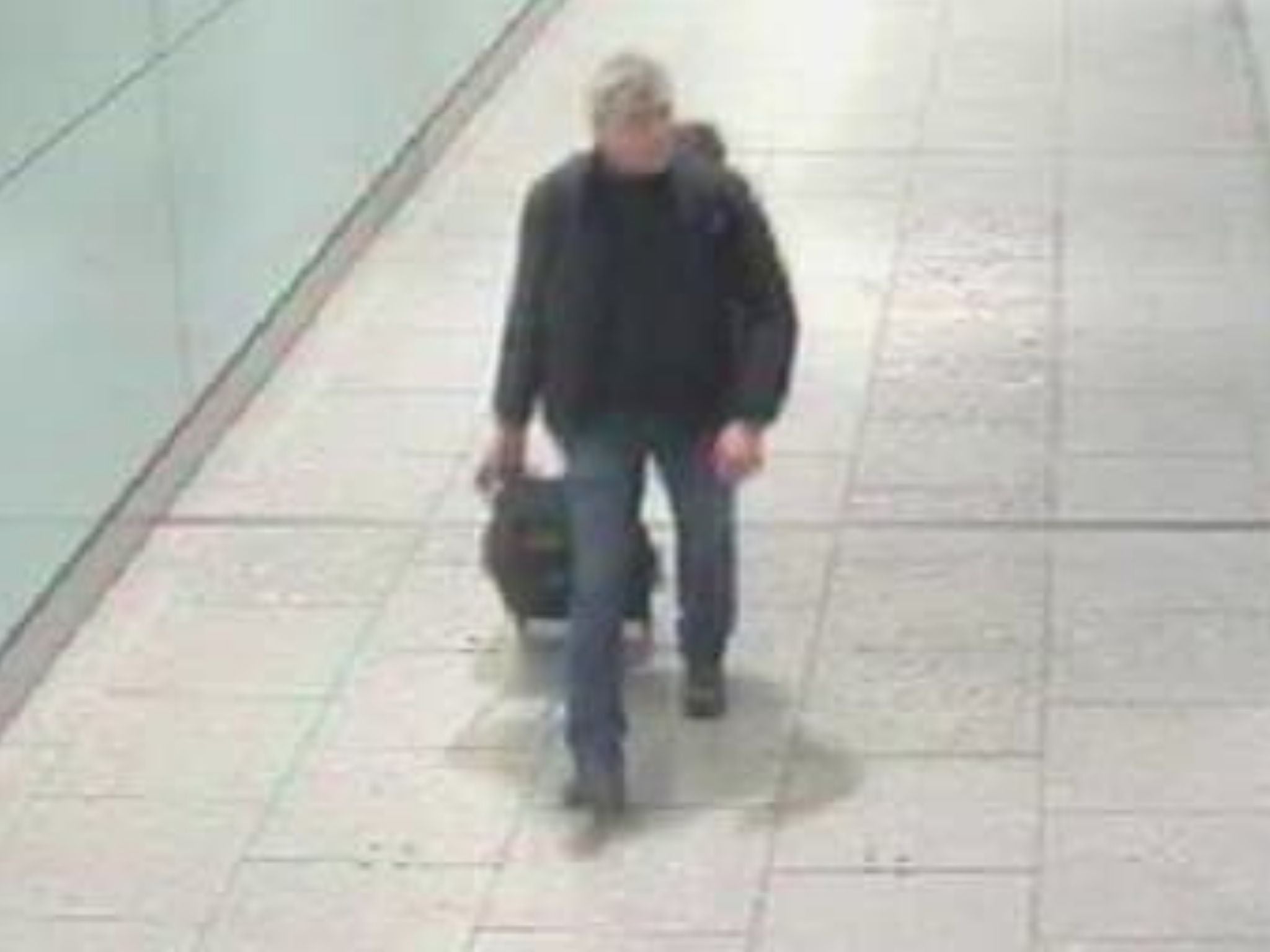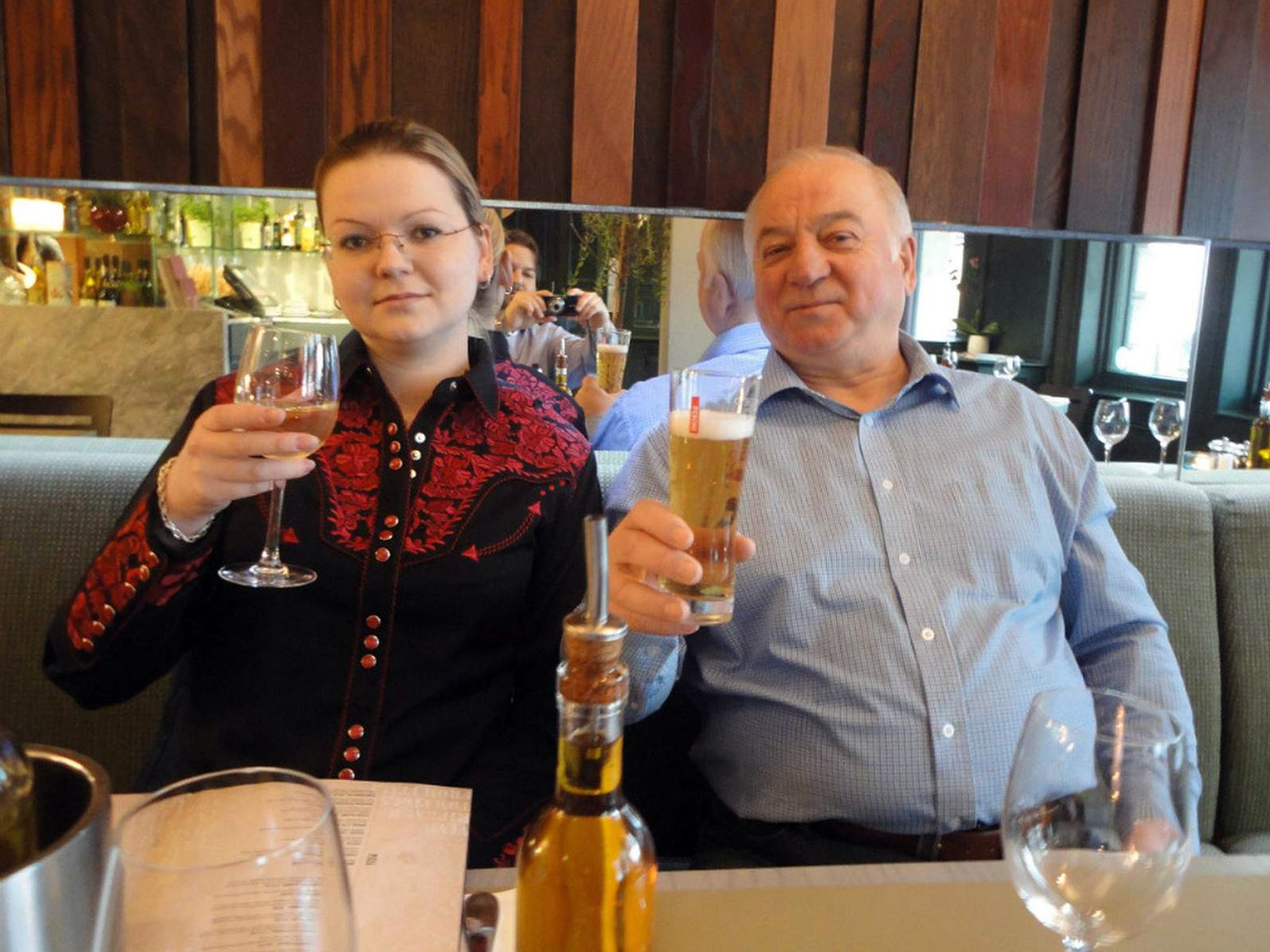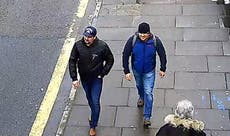Denis Sergeev: Who is the ‘third man’ wanted over Salisbury poisonings?
Russian also known as Sergey Fedotov now charged with poisoning of Sergei Skripal
British authorities have charged a senior Russian intelligence agent with involvement in the 2018 Salisbury poisoning, as details emerge of other attacks around the world.
Denis Sergeev, who travelled to the UK under the alias Sergey Fedotov, is believed to have commanded the two GRU agents who carried out the poisoning from London.
Their target was Sergei Skripal, a former Russian double agent who moved to Britain in a 2010 “spy swap”, and was living a quiet life in Salisbury.
Novichok was applied to his front door on 4 March 2018, poisoning Mr Skripal and his daughter Yulia, who fell grievously ill but survived.
Months later, in June 2018, a local man found a counterfeit perfume bottle containing the chemical weapon and gave it to his partner as a present.
Charlie Rowley survived being poisoned but his partner, 44-year-old mother Dawn Sturgess, died after applying it to her skin.
The Crown Prosecution Service (CPS) has authorised the same charges against Sergeev as the two previous suspects, including the attempted murder of Mr Skripal and his daughter Yulia, the grievous bodily harm of police officer Nick Bailey and the use of novichok as a chemical weapon.
Dean Haydon, the Senior National Coordinator for Counter Terrorism Policing, said Sergeev “operated as a team” with Alexander Mishkin, alias Alexander Petrov, and Anatoliy Chepiga, alias Ruslan Boshirov.
He said the trio had also worked “as a threesome” on attacks in other countries, including Bulgaria and the Czech Republic.
The Russian government has denied any involvement in the 2018 attack. At a press conference on Tuesday, Ministry of Foreign Affairs spokesperson Maria Zakharova accused the UK of “deliberately worsening relations” and using the poisoning “to increase anti-Russian feeling in British society”.
“We condemn attempts to blame Russia,” she added. “We are trying to ascertain the truth and want exhaustive information from the UK, and to fulfil obligations to give us consulate access to our citizens [Sergei and Yulia Skripal]”.
Who is Denis Sergeev?
British police say Sergeev is an agent in Russian’s GRU military intelligence service, aged around 50.
Further details of his life and career have previously been revealed by the investigative website Bellingcat, but not confirmed by authorities.
Bellingcat reported that Sergeev held the rank of major-general at the time of the attack, which is senior to two other GRU agents previously named as suspects.
Telephone records obtained from a whistleblower at a Russian mobile operator showed Sergeev lived in Moscow and worked at GRU buildings including its headquarters and academy.
He was born in Usharal, a small town in what was at the time Soviet Kazakhstan, on 17 September 1973 according to records obtained by Bellingcat.
Sergeev reportedly served in the army, before transferring to Moscow and enrolling at the elite Military Diplomatic Academy or “GRU Conservatory”.
The first use of his alias Sergey Fedotov, has been dated to 2010, when a passport was issued in that name by the same office that issued cover documents to other agents involved in the Salisbury attack.

What was his role in the attack?
Sergeev flew from Moscow to Heathrow Airport on 2 March 2018, arriving around four hours before his colleagues, and stayed at a hotel in Paddington for two nights.
British counter-terror police said Sergeev met the two agents who then travelled to Salisbury “on more than one occasion” over the weekend of the attack, but that no traces of novichok were found at his hotel.
He remained in London for the duration of his three-day visit, and investigators did not give further details of his movements.
Bellingcat previously reported that phone records showed Sergeev remained Paddington area apart from on 3 March 2018, when his phone registered near Oxford Circus and Embankment.
He was in the Embankment area between noon and 1.30pm – the same period when Mishkin and Chepiga were about to catch a train to Salisbury for a reconnaissance trip from nearby Waterloo station.
The Metropolitan Police said the pair arrived in the area at 11.45am but their train did not leave until 12.50pm. With only a 10-minute-walk between Waterloo and Embankment, the three agents could have met in that time.

“Had a meeting in person been necessary between Sergeev and the Chepiga/Mishkin team – whether to pass on final instructions or a physical object – the area between the Embankment and Waterloo would have been a convenient place, and the one hour time gap between their arrival to the station and their departure would have likely sufficed,” Bellingcat said.
The website reported that while in London, Sergeev was also exchanging messages on encrypted apps including Telegram, Viber and WhatsApp.
He was downloading large files – all using mobile networks rather than wifi – and speaking on the phone to someone codenamed “Amir from Moscow”.
Bellingcat concluded that due to his rank and experience, Sergeev was more “likely in charge of coordinating the Salisbury operation”.
Researchers said the available evidence indicated “he was involved in the Skripal operation in a supervising, coordinating role; communicating back and forth to Moscow, while leaving the suspected hit-team to work in an operational ‘Faraday cage’”.
Sergeev flew back to Moscow from Heathrow at 1.45pm on 4 March, less than two hours after the nerve agent was applied to Sergei Skripal’s door.
The police investigation is still live, and police are investigating other suspects who may have been part of the poisoning operation
What other attacks may he have been involved in?
British police said Sergeev, Mishkin and Chepiga worked “as a team” on the Salisbury attack and on others around the world.
“We have been piecing together evidence that suggests Petrov, Boshirov and Fedotov have all previously worked with each other on behalf of the Russian state on operations outside of Russia,” Mr Haydon said.
“We are in discussion with other countries, particularly Bulgaria and the Czech Republic, in relation to investigations they lead on.”
British authorities are also believed to be in touch with other nations “with an interest” regarding the latest developments in the investigation.
The investigation referred to in the Czech Republic is believed to be a 2014 explosion at an arms depot that previously resulted in the expulsion of Russian diplomats. Six months later, there was a linked poisoning in Bulgaria.
The blast at an ammunition storage depot on 16 October 2014 killed two workers and was initially presumed to be an accident.
But investigations later revealed that two men given access to the site for a supposed inspection prior to the blast had passport photos matching the Salisbury suspects Chepiga and Mishkin.

The BBC reported that they used the same cover identities used in the Salisbury attack - Ruslan Boshirov and Alexander Petrov - to arrive at Prague airport.
They stayed in Ostrava, near the ammunition depot, and left on the day of the explosion.
Six months later, in April 2015, an arms dealer linked to the depot fell seriously ill in the Bulgarian capital Sofia.
Local authorities discovered that Sergeev stayed in a hotel in the same complex as victim Emilian Gebrev's office in April 2015. He is believed to have been attacked using poison smeared on his car door handle.
In February 2020, Bulgarian prosecutors charged Sergeev with the poisoning under his cover name, as well as two other suspected GRU agents known as Sergey Viktorovich Pavlov and Georgi Gorshkov.
Bellingcat accessed travel records showing that Sergeev has moved extensively around Europe since 2012, visiting countries including Ukraine, France, Italy, Switzerland, Serbia and Spain.
Why are these developments happening now?
Sergeev’s identity and other details of the attack were revealed by the investigative website Bellingcat in 2019, but Mr Haydon said it had taken time to gather evidence that reached the threshold for a criminal charge.
“Despite speculation [and reporting by] Bellingcat and open source media we have to follow due process and follow the evidence,” he told a press conference. “Since early 2018 that’s what we’ve been doing ...it has taken us longer with the third individual.”
Mr Haydon said investigators had identified Sergeev as a suspect at “roughly the same time” as Mishkin and Chepiga, but not been able to find concrete evidence linking him to the attack as easily.
The police did not announce that they were investigating Sergeev until the Crown Prosecution Service authorised charges, after lengthy consideration of the evidence.
The same test is applied to all crimes in England and Wales, meaning that prosecutions must be in the public interest and that there must be enough evidence to give a “realistic prospect of conviction”.
Intelligence gathered by covert means or spy agencies cannot easily be used in British courts, for both national security and legal reasons.

What will happen to Sergeev?
British police believe that Sergeev, as well as his alleged accomplices Mishkin and Chepiga, remain in Russia.
The CPS is not applying to Russia for an extradition warrant because the country’s constitution does not permit the extradition of its own nationals.
Instead, Interpol red notices have been issued meaning the suspects can be arrested if they leave Russia - where all three men are believed to remain.
Mr Haydon said British authorities had seen “very little cooperation from Russia” since 2018, or in previous cases such as the murder of Alexander Litvinenko.
He added: “The Foreign Office will be talking on diplomatic channels to Russia but from the police investigation side, our due process is to seek arrest warrants and circulate those through Interpol.
“If there is an opportunity to arrest those individuals and put them in front of a UK court to seek justice for those individuals mentioned or the people of Salisbury, we will do that.”





